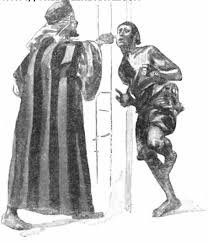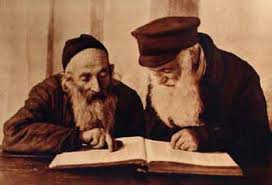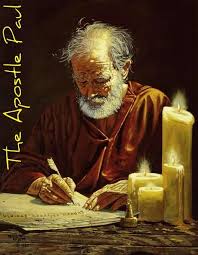Concerning the Treatment of Slaves by Hebrews
The first portion of this week’s Torah Reading deals with the issue of Hebrews owning slaves; particularly Hebrew slaves (Exo. 21:1-11) .
According to this passage, if a Hebrew acquires a Hebrew slave, they would serve that master for 6-years. In the 7th-year that slave would be freed. This is confirmed in Deuteronomy 15:12 which reads,
“And if thy brother, an Hebrew man, or a Hebrew woman, be sold unto thee, and serve thee six years; then in the seventh year thou shalt let him go free from thee” (KJV).
It would seem this ordinance involving the releasing of the Hebrew slave in the 7th month is not directly tied to the Shemitah.
It should be noted that the Hebrews failed to keep this ordinance according to Jeremiah 34:14.
Debt and Slavery
What would justify a Hebrew acquiring a Hebrew slave? The most likely reason is found in Matthew 18:25:
“But forasmuch as he had not to pay, his master commanded him to be sold, and his wife and children and all that he had and payment to be made” (KJV).
In this context, a Hebrew would acquire another Hebrew through unpaid debt.
Ancient Near Eastern custom facilitated that an individual who is in debt to another, be sold into slavery if that debtor is unable to pay off their debt. Torah, although not sanctioning or advocating the practice, established provisions for an individual who is in debt to another to be sold into slavery if the debtor is unable to pay his debt to the master.
Abba, in establishing ordinance regulating the treatment of Hebrew slaves, acknowledged the practice existed. However, Abba established time limits to the servitude. No Hebrew who was enslaved by another Hebrew could be forced into servitude for more than 6-years. That slave was to be released in the 7th year of their enslavement.
Yeshua Clarifies the Practice of Debt Slavery
Yeshua came to clarify Torah for us. In so doing, it was through parable that He taught that the debt owner always had the wherewithal and right to release or forgive his debtor’s debt (Matthew 18).
What Master’s parable teaches the Torah Observant Disciple of Yahoshua is that debt should ultimately be forgiven. No one who is indebted to us, as disciples, should be made to endure unending servitude or strung out debt to us. And this attitude should run across the board and be recognized by every disciple of Messiah.
More Than Material Debt and Slavery
Debt in this sense also transcends the material. Forgiveness is always a virtue that Father has shown to His beloved. The biggest and most pervasive debt we all owe is our sin debt. We are indebted to Father as a result of our sins. Yet Abba has provided a means whereby our debt can be forgiven. We in turn serve and obey Him for his forgiveness of our sin debt.
Likewise, we are compelled to forgive our fellow disciples any physical debts they owe us, as well as any trespasses committed against us by fellow believers.
Master instructed that we lend, hoping for nothing in return…(Luk. 6:35; NKJV).
If we harden our hearts towards those who owe us materially and on a relationship basis, then we stand the risk of not being forgiven by our Heavenly Father. In this regard, Yeshua in the Parable of the Unforgiving Servant stated:
“Then his lord (speaking of the master to the servant who refused to forgive his debtor), after that he had called him, said unto him, O thou wicked servant. I forgave thee all that debt, because thou desiredst me. Shouldest not thou also have had compassion on thy fellowservant, even as I had pity on thee? And his lord was wroth, and delivered him to the tormentors, till he should pay all that was due unto him. So likewise shall my heavenly Father do also unto you. If ye from your hearts forgive not every one his brother their trespasses” (Mat. 18:32-25; KJV).
The Making of a Bond Servant
Nevertheless, back to our Torah Reading passages: Father placed a provision in Torah whereby the servant who chooses to remain in permanent servitude to their master may willingly do so. Thus, the servant desiring bond servant status would be brought to the judgment-seat of God (according to the LXX) or to the judges (according to the KJV and other Authorized Versions) by that master. The purpose appears to be one of making the permanent servitude a publicly stated matter.

A Hebrew slave desiring to serve their master in perpetuity would undergo an ear piercing by an awl on that master’s doorpost.
Upon the conclusion of the proceeding at the judgment seat of God, the servant would then be brought to the door or door post of the master’s home. That servant’s ear would then be pierced by an awl (ie., a metal pointed tool used to punch holes in material like leather).
Thus, that servant would serve that master till the death of the master or of that of the servant (cf. Deu. 15:17).
A Shadow of Good Things to Come
This ordinance is clearly illustrated in our claiming perpetual servitude to YHVH our Elohim. Fortunate for us, Yahoshua Messiah was already pierced on our behalf having himself been judged on our behalf for our sins.
My Last Word on the Cepher Bible and the Divinity of Yeshua–At Least Till Next Time
Why Discuss the Cepher Bible Yet Again So I elected to do a rather quick reiteration--albeit last word on the Cepher Bible and the Divinity of Yeshua. At least, until the issue comes up, let's just say. Over the last year or so I've received a number of inquiries...

Paul on Aggadah–Part 5 of Paul and Hebrew Roots Series
Paul on Aggadah—Part 5 of the Paul and Hebrew Roots Series Let us quickly recall from Part 4 of this series that Aggadah is that unseen/invisible aspect of our lives that prompts or influences or even controls our behavior; in particular,that inward motivation, zeal,...
The Meaning Behind The Recent Dedication of an Altar in Jerusalem
If you’ve been keeping up with world news of late, you may know (or not) that the resurrected Great Sanhedrin, headquartered in Jerusalem, sanctioned a Levitical offering of a previously sacrificed lamb upon a practice altar somewhere in Jerusalem. (Yes, there really...

Paul on Halakhah and Aggadah–Part 4 of the Paul and Hebrew Roots Series
Paul on Halakhah and Aggadah Last installment, or Part 3 of this series, I introduced to you the Hebrew concept of Halakhah. In that discussion, I attempted to not only define what halakhah meant, but I also attempted to convey the significance of...
A Biographical Portrait of the Pre-Converted Paul and Halakah–Part 3 of the Paul and Hebrew Roots Series
Review of Parts 1 and 2 of this Series Over the course of the last two installments of this series, we have been laying the groundwork for assembling our portrait of the Apostle Paul prior to his conversion. In the first two-installments we discussed: Why it is...
To Fellowship Or Not Fellowship
A Nagging Question To fellowship with a group of Sabbath-Feast-keepers or not has been a question plaguing me for the last couple weeks. A couple months ago we were invited to fellowship with this group. Now, know that this is NOT a question whether to participate...

Paul-The Man Beneath the Apostleship–Part 2 of the Paul and Hebrew Roots Series
If you've not already done so, I invite you to listen to or read Part 1--Paul, the Man Beneath the Apostle, before moving in to this installment. Apparent Biblical Contradictions and Controversies Before we address the person of Paul straight-on today, I...

The Apostle Paul–Part 1-The Man Beneath the Apostleship
My Goal For This Series Thank you for joining me for Part 1 of this multi-episodic series on The Apostle Paul. This being part-one of the series, we'll lay the ground-work for understanding the man beneath the apostleship. In succeeding installments,...
Who or What is a Messianic Torah Observer?
Inquiring Minds Want to Know I've received a number of email inquiries over the last couple years from various listeners and readers asking the meaning of the title "The Messianic Torah Observer." Allow me to break this bad-boy down for you. To begin with, I...
The Fall Feasts of Yah-The Feast of Tabernacles-The Feast of Sukkot
And greeting fellow Saints of the Most High Elohim. Welcome to The Messianic Torah Observer. I'm Rod Thomas, your host. And as always, it is my sincerest hope, trust and prayer that this installment of the program finds you, your families and fellowships well and...

0 Comments